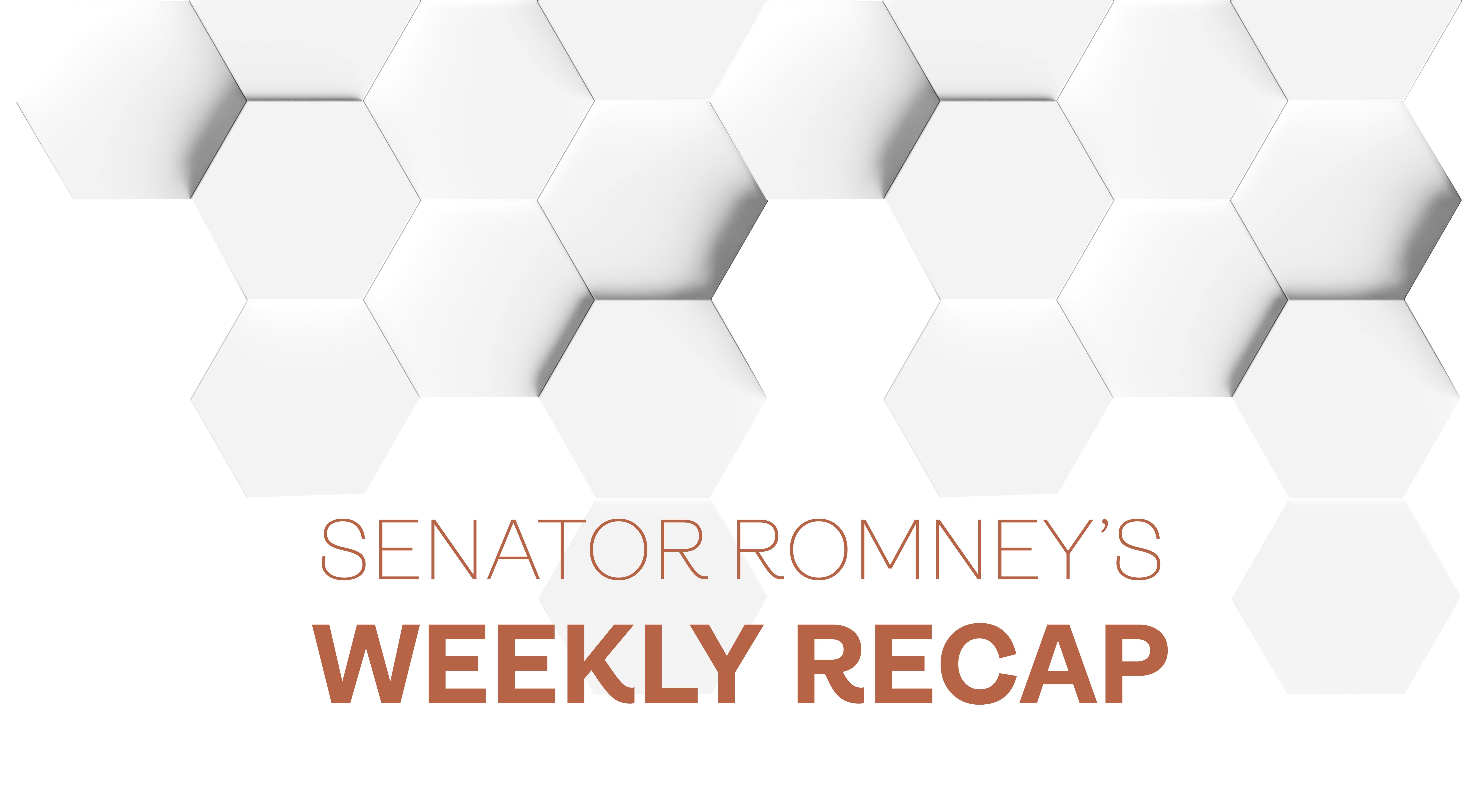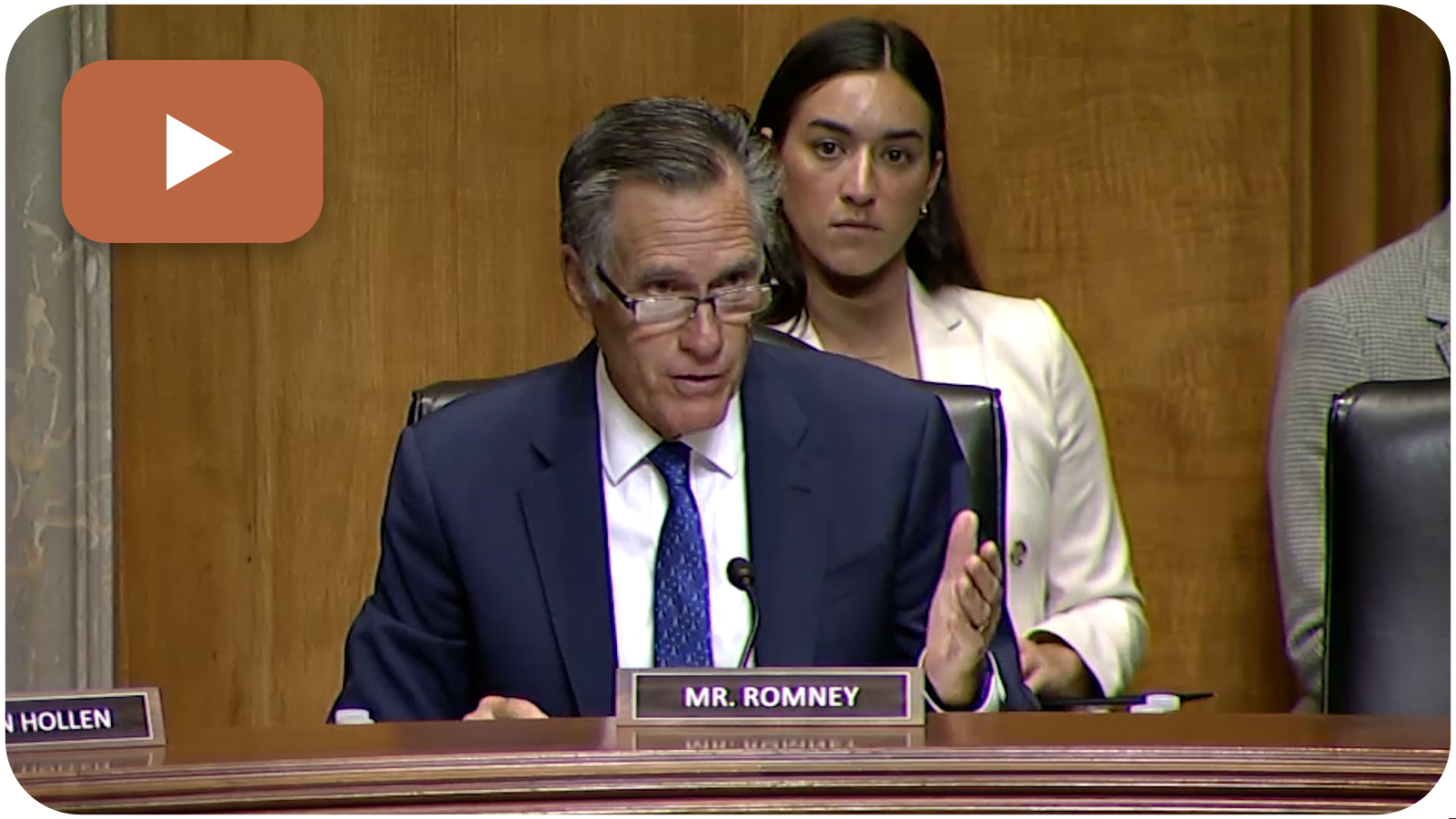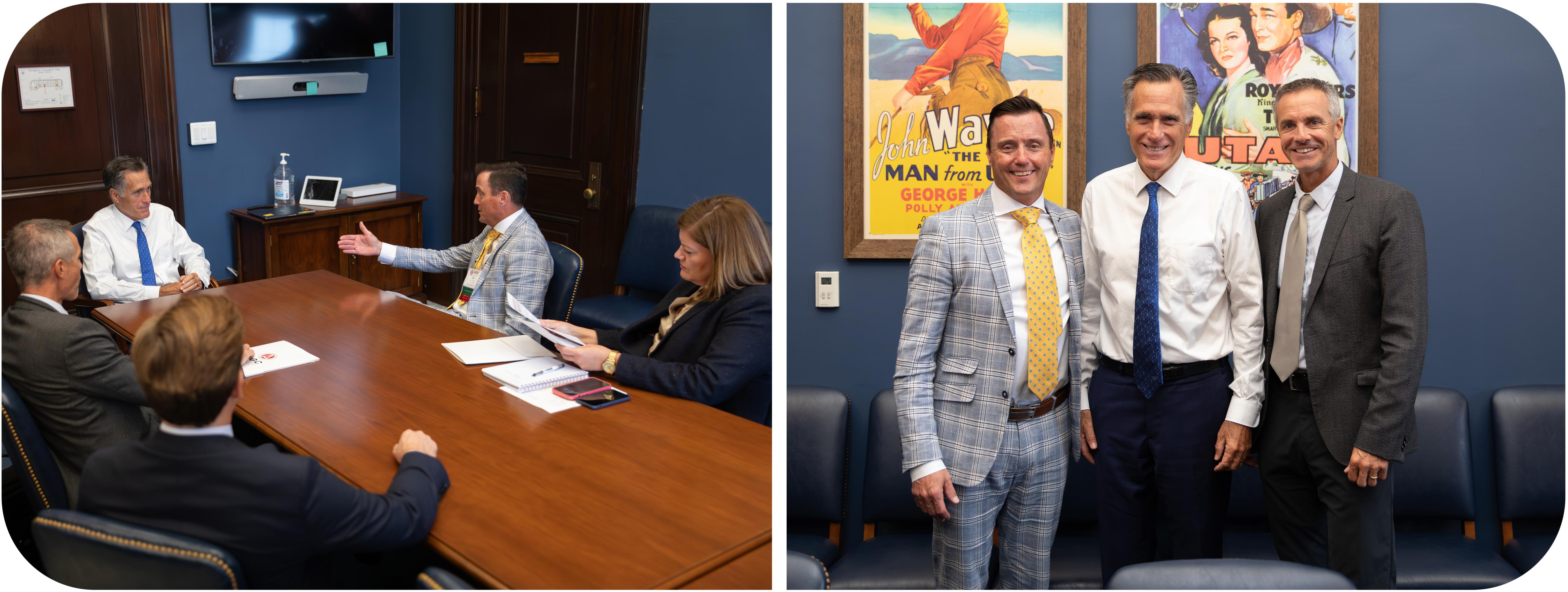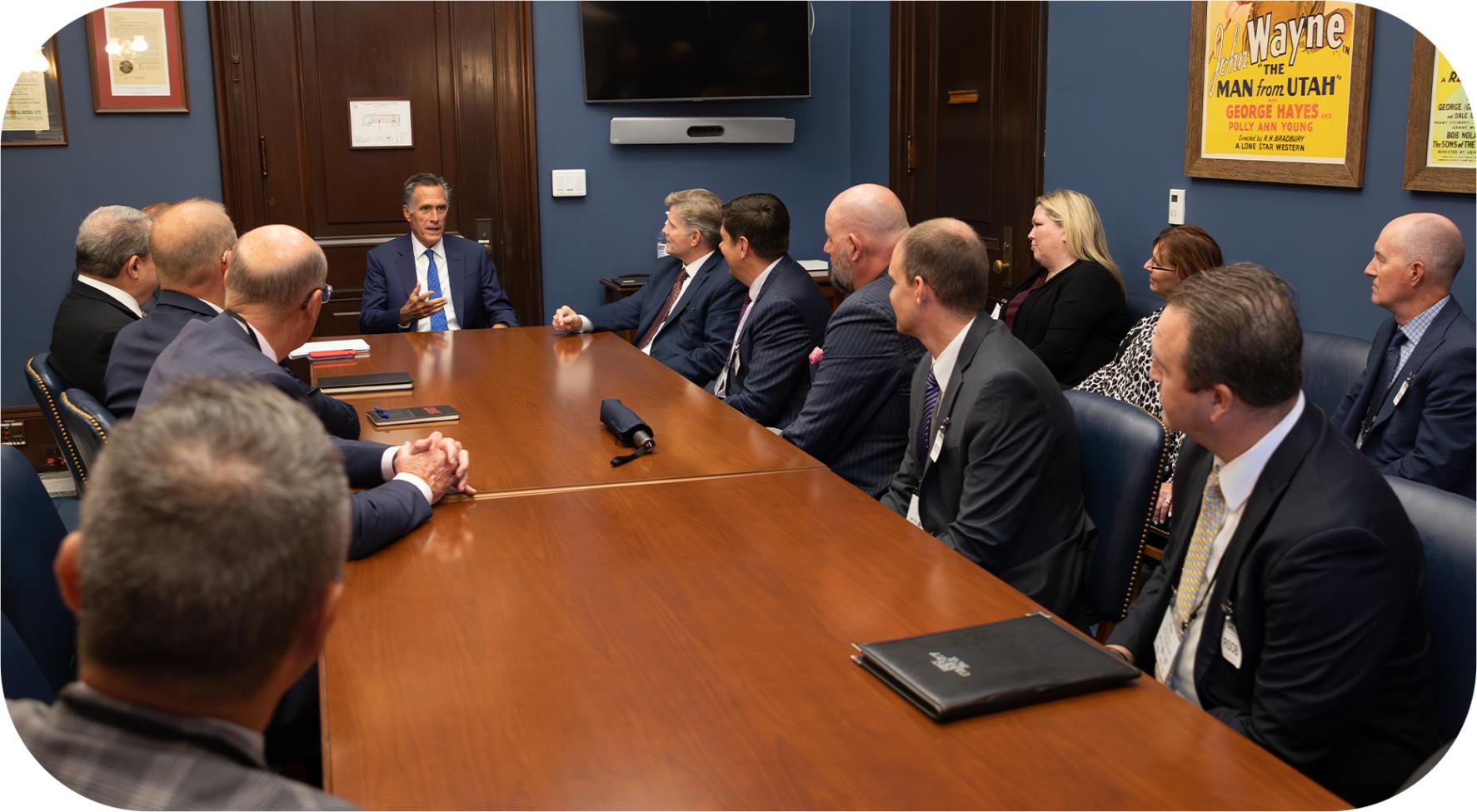|

September 23 – 27, 2024
|
|
|
Utah—out of all 50 states—has the highest number of children in each family. And in today’s economy, families are facing great financial strain. This week, Senator Romney introduced legislation that would support families raising kids by expanding the Child Tax Credit without adding to the debt. He also introduced legislation to help the federal government assess its ability to respond to economic shocks and to continue oversight of funds tied to COVID-era programs. All this and more below.

|
|

Federal family policy remains antiquated and scattered across the tax code and dozens of different programs, and the modern economy seems to discount the merits of raising children. Additionally, when the Tax Cuts and Jobs Act of 2017 expires next year, the Child Tax Credit will be cut in half.
Throughout his term, Senator Romney has fought for policies that support families raising children. This week, he introduced the Family Security Act—pro-family, pro-life, and pro-marriage legislation that would modernize and streamline antiquated federal policies into an expanded Child Tax Credit for working families. The bill would increase the Child Tax Credit to $4,200 for each young child and $3,000 for each school-aged child, and create a new $2,800 tax credit for expecting parents. This would all be fully paid for by consolidating existing federal spending so it wouldn’t add a penny to the national debt.

With the national debt at a staggering $35 trillion, our country is on the fast track to fiscal calamity. A national or global fiscal shock—such as a recession, cyberattack, or domestic energy crisis—could easily leave American families, businesses, and our country in economic peril. Senators Romney, Manchin (I-WV), Warner (D-VA), and Braun (R-IN) introduced the Reassuring Economic Stability In Light of International, Economic, and Natural Conflicts and Emergencies (RESILIENCE) Act—bipartisan legislation to help the federal government’s better understand its ability to respond to major, unanticipated economic events and strengthen the United States’ resilience to potential fiscal shocks.

Authoritarians continue to take advantage of advanced technologies like AI—further exacerbating their global influence and increasing threats to freedom. Senator Romney, the lead Republican on the Foreign Relations’s International Cybersecurity subcommittee, helped lead a hearing on U.S. leadership in international cyberspace where he argued that our country’s superiority in technological advancement is what America has always done to hold aloft the flame of freedom.


Full story by Gitanjali Poonia here.

Federal COVID relief was important for the country at a critical time, but it’s become clear that we still need oversight of the funds tied to these programs. Senator Romney, the lead Republican on the Homeland Security’s Spending Oversight Subcommittee, along with Senators Hassan (D-NH), Warner (D-VA), Ernst (R-IA), introduced the COVID Spending Transparency Act of 2024, bipartisan legislation that would extend the term of the Treasury Department’s Special Inspector General for Pandemic Recovery (SIGPR)—currently scheduled to sunset at the end of March 2025—for another five years.

Utahns are incredibly concerned about our burgeoning $35 trillion in national debt—more so than the average American. While meeting with members of the Salt Lake Chamber to discuss federal priorities for Utah’s businesses, Senator Romney raised the urgent need for Washington to solve our federal debt crisis and safeguard our economic strength.


Construction is in high demand in Utah thanks to our exciting economic growth—but this has resulted in workforce shortages across the industry. Senator Romney met with members of the Associated General Contractors of Utah to discuss ways to promote education and careers in skilled trades.


Senator Romney met with members of the Utah Bankers Association for a discussion on our state’s banking industry.

|
|

|
|
 
|
|